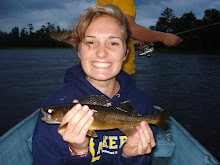
Since the beginning of my blogging experience, I have come to realize what a great tool blogging can be. Not only do I get to express my views for the world to see, but I am able to check out fellow classmates and bloggers, seeing what they find interesting. Sometimes it can be hard for people to express their opinions and I am definitely one of those people. When I began blogging, I didn't know how to approach it or if it was really going to be worth while. Now that it is coming to a close (for now) I must say that it has been beneficial. Blogging allows me to point out key points I enjoyed in lectures and have a dialogue, even if it's with only myself.
Classrooms are a place where I can see blogs being used, especially with upper elementary students and even the teacher using it. Like websites, blogs can help keep the parents and other members of a students family in touch with the classroom. I feel like blogs help out a lot in this department because it allows the blogger to write their thoughts as if a conversation was going on. Although it is great for this use, I believe that it is still important to keep contact with the parents of the students and to not rely completely on the blog.
As we step into the future, new forms of communication are being formed and blogging is a major possibility in classrooms of all types. Whether teachers require their students to blog for an assignment or the teacher uses a blog to communicate with others about their clasroom, blogs are full of possibilities. The ease of the format and accessibility (for most) is great and allows for anyone to express opinions, thoughts, or ideas.
Check out this article for information on a teacher that uses blogs to teach composition


